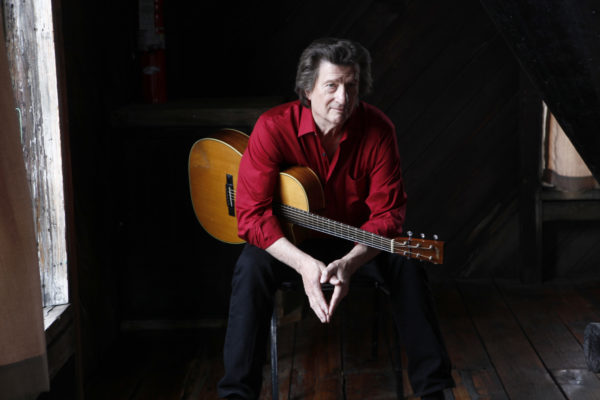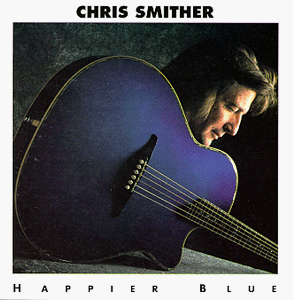Music Interview: Singer/Songwriter Chris Smither — Coming Full Circle
By Glenn Rifkin
Chris Smither’s songs have been recorded by the likes of Bonnie Raitt and Diana Krall. For many, his rank — just short of superstardom — remains a mystery.
An Evening with Chris Smither at Passim, Cambridge, MA, on Sept. 20 at 8 p.m. (Doors open at 7 p.m.)

Chris Smither — he’s just too good to be less than a household name. Photo: Jeff Fasano.
In November, Chris Smither, the folk/blues singer/songwriter with the gravelly pipes and extraordinary guitar skills, turns 75. In a career that has soared past the half-century mark, Smither has become an industry legend whose unique style, sound, and beat-driven fingerpicking have generated a devoted and passionate following. His songs have been recorded by the likes of Bonnie Raitt and Diana Krall. For many, his rank — just short of superstardom — remains a mystery. He’s just too good to be less than a household name.
But this veteran performer, who once titled an album Happier Blue, is in reality, happier . . . well, happy. He and his wife and manager Carol Young live contentedly in Amherst, MA, and Smither continues to write, record, and tour on his own terms. He used to play a grueling 200 nights on the road, but he’s cut that in half. He has survived alcoholism (more than 30 years sober) and recent heart troubles. And the passion that has fueled his remarkable longevity is as evident as ever. He is in fine voice and loves his latest album Call Me Lucky (2018) as much as any he’s done.
When he takes the stage at Club Passim in Cambridge on Sept. 20, it will bring his career full circle. In 1966, not yet 22 years old and living in his hometown of New Orleans, he ran into folk legend Eric Von Schmidt in Florida. Von Schmidt helped put the celebrated Cambridge folk scene on the map in the late 1950s and early ’60s. Impressed with the young Smither’s obvious talents, he suggested the young musician make his way up to New York and Boston.
“That was the word of God,” Smither recalls. “So I went up to check out the club scene.” Taking his time, he showed up in Cambridge two months later and headed for the Club 47, the forerunner to Passim. By pure coincidence, Von Schmidt was on the bill that night. Smither went in and found the singer in the back, preparing for his show. Von Schmidt was mildly surprised that Smither had actually taken his advice, but was pleased to see him. He invited Smither to get on stage and play three or four songs prior to his set.
“I thought to myself, ‘Holy Shit! My first night in Cambridge and I’m playing in Club 47. My fortune is assured,’” Smither says. With 18 albums under his belt, he has established himself as one of the most prolific songwriters of his generation. And Smither shows no inclination to stop anytime soon. He spoke to Glenn Rifkin about his career.
Arts Fuse: You’ve got such a unique style. How did it evolve?
Chris Smither: When I first started doing this for a living, I thought of myself as a guitar player. I thought I was pretty good. (laughs) I like to say: For a songwriter, I’m a pretty good guitar player.
I’m not a schooled musician, in any sense of the word. I didn’t have any musical training. I’m what they basically call a 1-4-5 guitar player. I started with three chords and the truth, as they say. But you can’t hang out with other players and do this for over 50 years without finding out a little bit about how music works. I’ve gradually learned how to work out of chord formations, and build progressions and melody lines on the guitar. And I learned basic things about harmony. But when it comes right down to it, I’m just like Bob Dylan. I’m still basically a three-chord guy.
AF: How about your lyrics, which are profound, moving, and sometimes hilarious?
Smither: What’s really evolved, as far as I’m personally concerned, is the lyric writing. In the beginning I listened to a lot of blues. That was what I was totally interested in. I would play Lightnin’ Hopkins, Skip James, and Mississippi John Hurt. I liked the economy of expression. It impressed me enormously that they could get such deep meaning out of such a few simple phrases. And the way those phrases got swapped around among the players and got repeated, like changes, was fascinating to me.
I suddenly realized you could do more than that when I was listening to Cream’s Disraeli Gears. I loved that record. Basically it was just blues, but they’re not singing about sharecropping. They’re doing all kinds of shit. I also had an abiding love affair with the lyrics of Randy Newman. Just the way he could paint a whole picture. To me, it’s almost photographic.
AF: Anybody else?
 Smither: Another lyricist who always impressed me was Paul Simon. Not so much for what he said, but his understanding of the value of a sound, of certain words, the way they feel in your mouth, almost, as well as the way they hit your ear.
Smither: Another lyricist who always impressed me was Paul Simon. Not so much for what he said, but his understanding of the value of a sound, of certain words, the way they feel in your mouth, almost, as well as the way they hit your ear.
AF: Translating that into your own work isn’t always intuitive.
Smither: I’ve learned a lot about how to put a song together and how to make it interesting and tell a story, even if you aren’t certain what the story’s about. I learned how to make it have a sense of style. If it has a style it will mean something. It’s almost impossible to avoid.
AF: Of your 18 albums, do you have a favorite?
Smither: Usually I say the newest one. In this case, it is. I never made a record I didn’t like. I get totally engaged in all of them. I’ll say Small Revelation (1997) was a big turning point for me. That was a sea change. I really started to think of myself as a songwriter. Leave the Light On (2006), I love that one. I love most of the ones I’ve done with (producer) David Goodrich. Each one made a progressive move . . . had some progress to it.
AF: Call Me Lucky, the newest album, is really vintage Chris Smither.
Smither: I love the singing on that one. I was in very good voice at the time, singing very expressively. The songs were tight and there was something about the studio we were working in. It was exhilarating.
AF: You’ve had a remarkable career for more than a half century, and yet you seem to be in that category of Famous to a Few, an enthusiastic but relatively limited fan base. Is that an issue for you?
Smither: When I was younger, I thought I’d be a household name. Absolutely. Then there came a time when I thought it was over and said, “I’m not going to get anywhere.” Eventually, I came out of that. I’m in a nice place now. I’ve got everything I want. I’m financially secure, and I’m happy. I get to do what I want to do. I’m in a place where I can work as much or as little as I want to. If I wanted to work 250 nights a year, I could. It wouldn’t be a problem. But I don’t want to work that hard anymore.
AF: Being at peace with your career is a great thing.
Smither: I tell younger musicians, and I tell their parents — who are worried that their kids are getting into music — “for god’s sake. You don’t have to be a household name to be a success in this business.” How many people know my name? I mean, a lot more than I would have dreamed at one point. But the fact is, I’m not super famous, and yet, I own my house, I put my kids through school. I’m not a hard-luck case by any means. People would be surprised to find out just how well you can do.
AF: How special is it to perform at Passim?
Smither: It’s wonderful. I love it, the whole idea of going in there. It’s still the same space. The audience is basically my age (laughs). They come in and the whole history is there. It’s a wonderful feeling.
Glenn Rifkin is a veteran journalist and author who has covered business for many publications including The New York Times for nearly 30 years. He has written about music, film, theater, food and books for The Arts Fuse. His new book Future Forward: Leadership Lessons from Patrick McGovern, the Visionary Who Circled the Globe and Built a Technology Media Empire was recently published by McGraw-Hill.
